At the risk of a slow-loading post, there are 30 photos on this one. But I took a lot more, and you know every picture tells a story with me. And this is the story of the Maryland GOP Fall Convention, brought to you by…
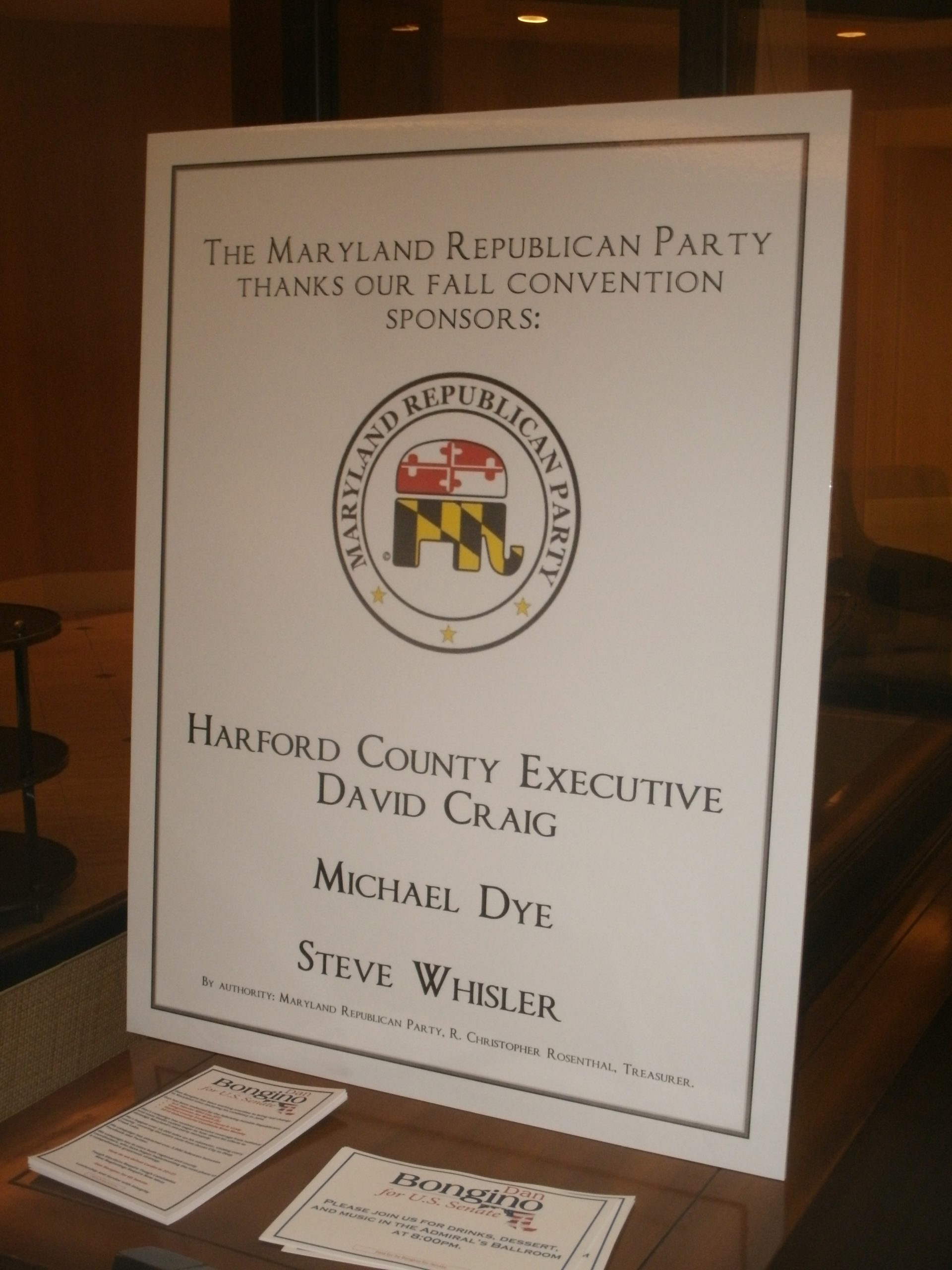
I’ll begin with Friday night, the usual social time for the convention. Even though I’d never been to the Sheraton in Annapolis, once I saw these I knew I was in the right place.

(Of course, I took that snapshot yesterday morning.)
But first I sat through the first portion of the Executive Committee meeting. We got as far as a brief budget discussion and Chair’s Report before being tossed out when the meeting transitioned to a closed session. Perhaps the most interesting pieces of news were the search for a new Executive Director had attracted 40 applicants and the “several options” for a new home, where the goal is to choose the “place that’s most fiscally responsible.”
So it was time to find a hospitality suite and schmooze for votes. Because I’m a Cain supporter, that’s where I started out.
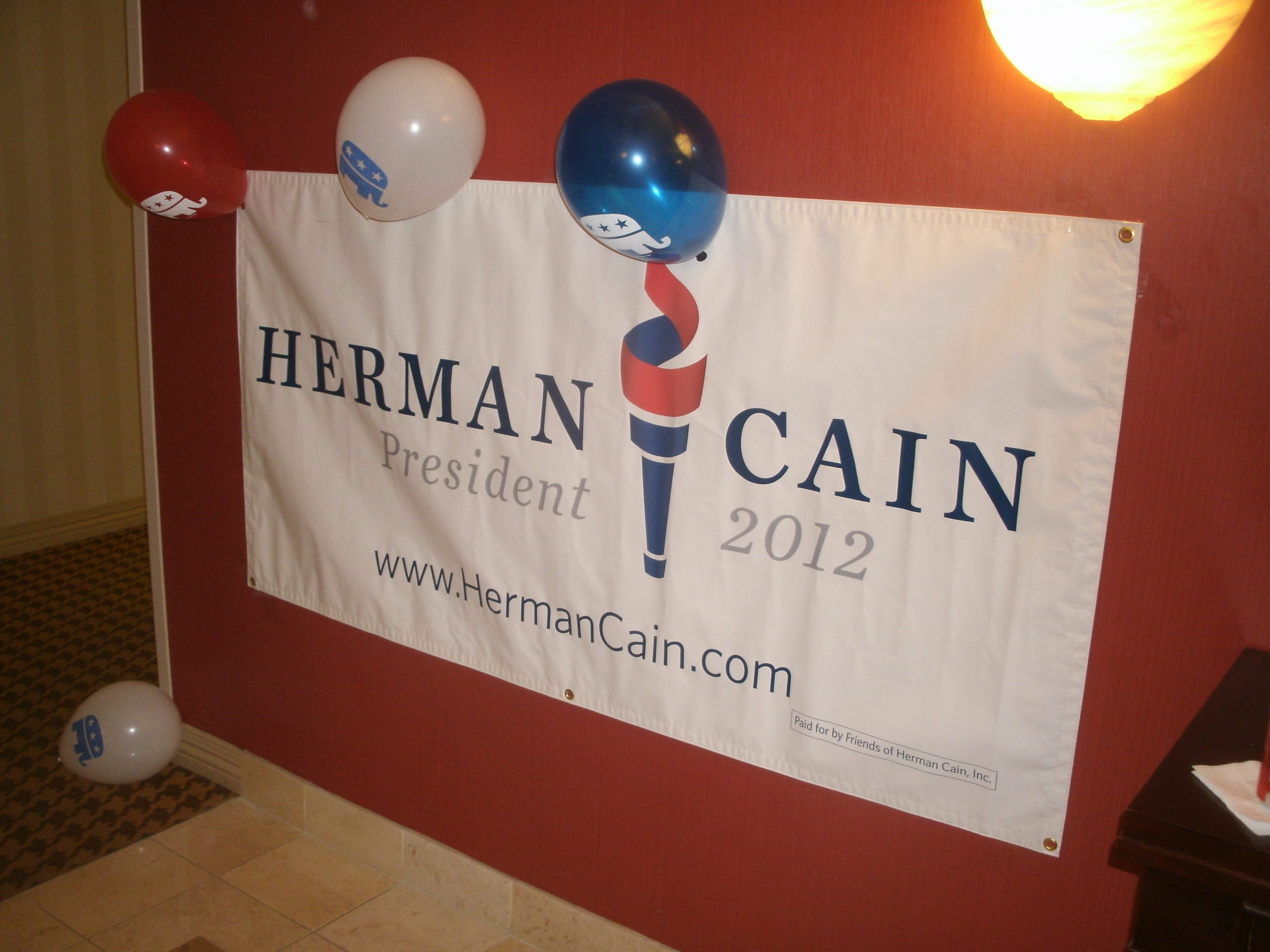
They had lots of balloons both inside and out. Naturally they had pretty substantial food too.

No, it’s not Godfather’s Pizza. Unfortunately, to be authentic we would have to endure cold pizza, considering the closest Godfather’s location is in Lancaster, PA – 72 miles from Annapolis. (Yes, I verified that.) It’s the thought that counts, right?
But I didn’t get the one thing I wanted from there because they didn’t have this swag on Saturday.
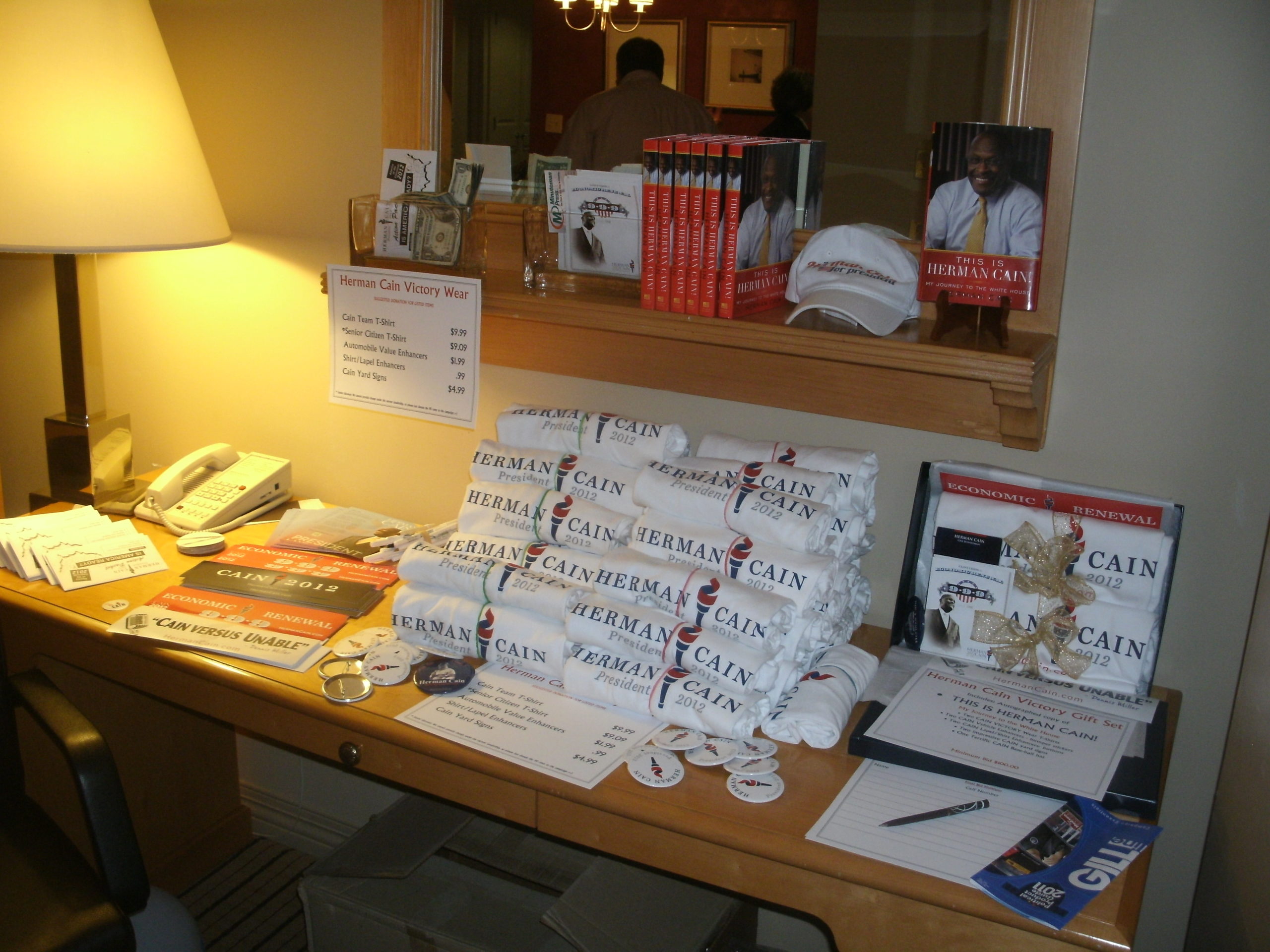
My car doesn’t have the Cain sticker on it yet. Maybe later.
But they also had the most witty signage by far, like this example.

Compare this to the quite understated Mitt Romney suite.
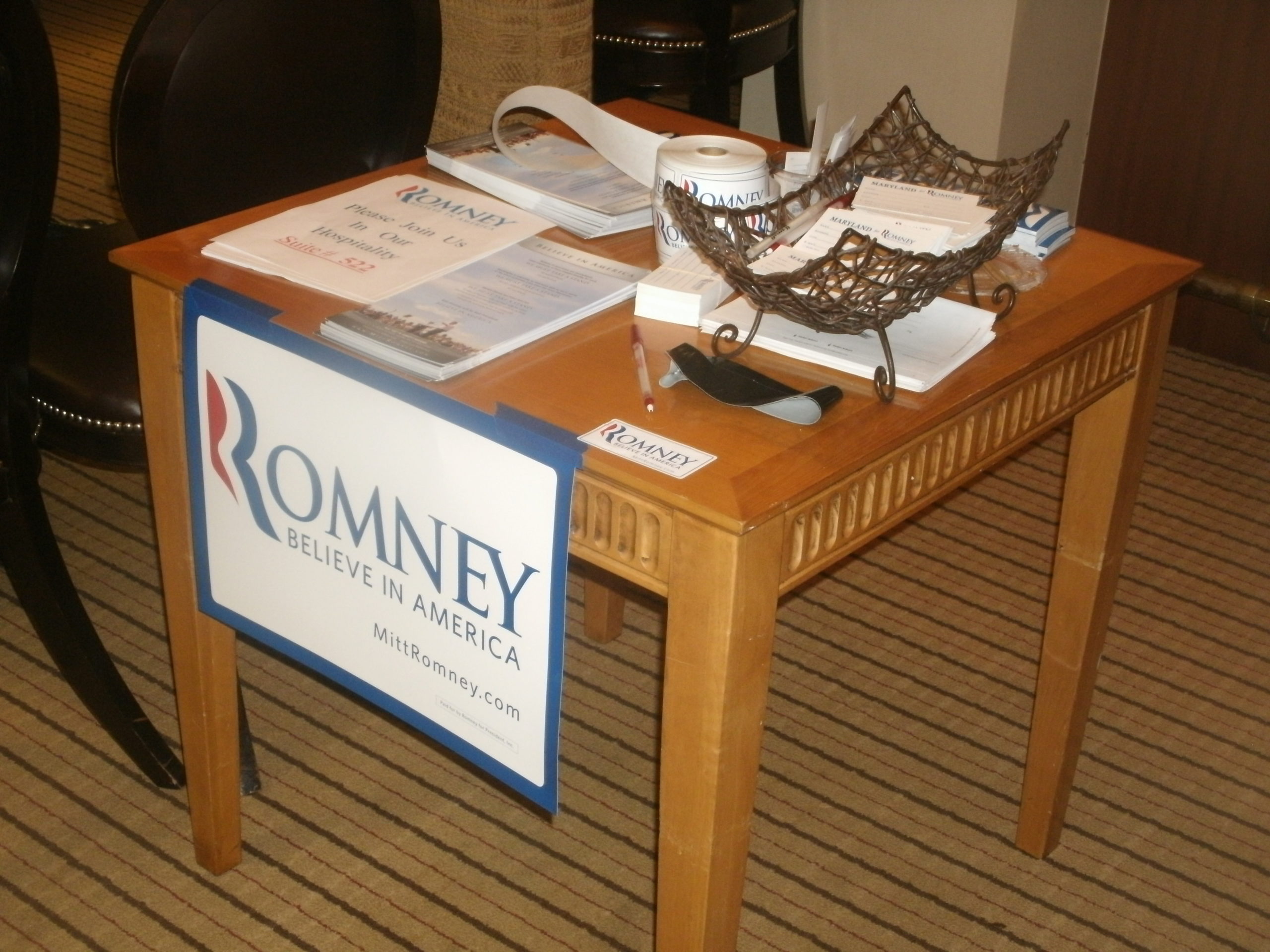
Many of those present there would be what one considers party brass. I see a former Chair and a current Committeeman in this picture.

Actually, I had an interesting conversation there with Audrey Scott there regarding a post I made awhile back. (I think it may be this one where I quoted something I wrote from 2006, before I was on the Central Committee.) I’m glad Audrey appreciates my passion but if that’s what she’s referring to she’s barking up the wrong tree.
Returning to the present day, I can’t ignore the other Presidential candidate with a presence there – although it wasn’t a hospitality suite.
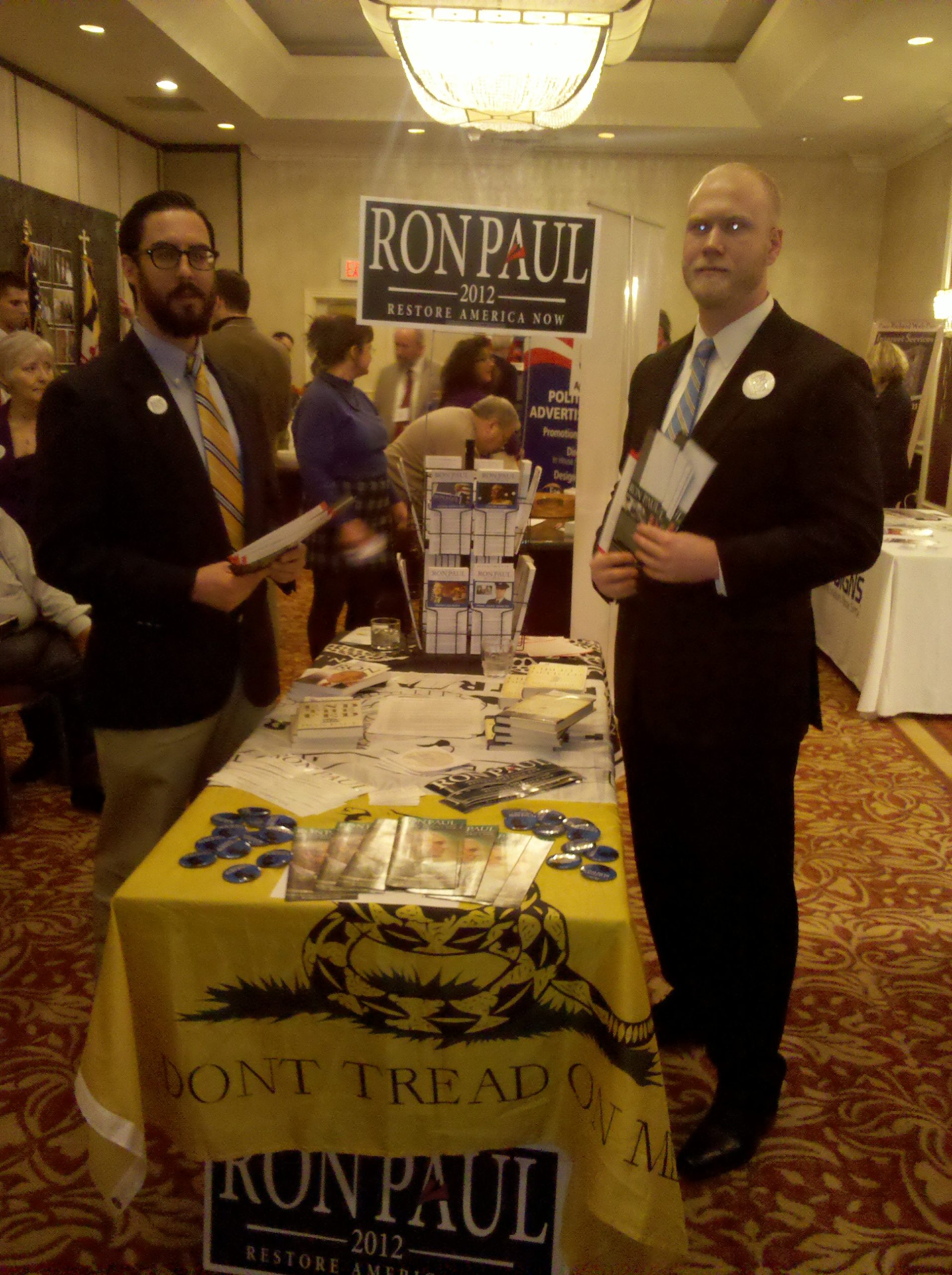
I think that was the only Gadsden flag I saw there, despite the perceived influence of the TEA Party on GOP politics. I’m sure there is a segment of the TEA Party which prefers Ron Paul, but I wouldn’t go so far as saying he’s the most popular in that group.
It was a Senate candidate, though, who had the sweetest suite. Check out this spread, practically guaranteed to induce a diabetic coma.

It belonged to Senate hopeful Rich Douglas, who was holding court there with sponsor and former Ambassador Roger Noriega.
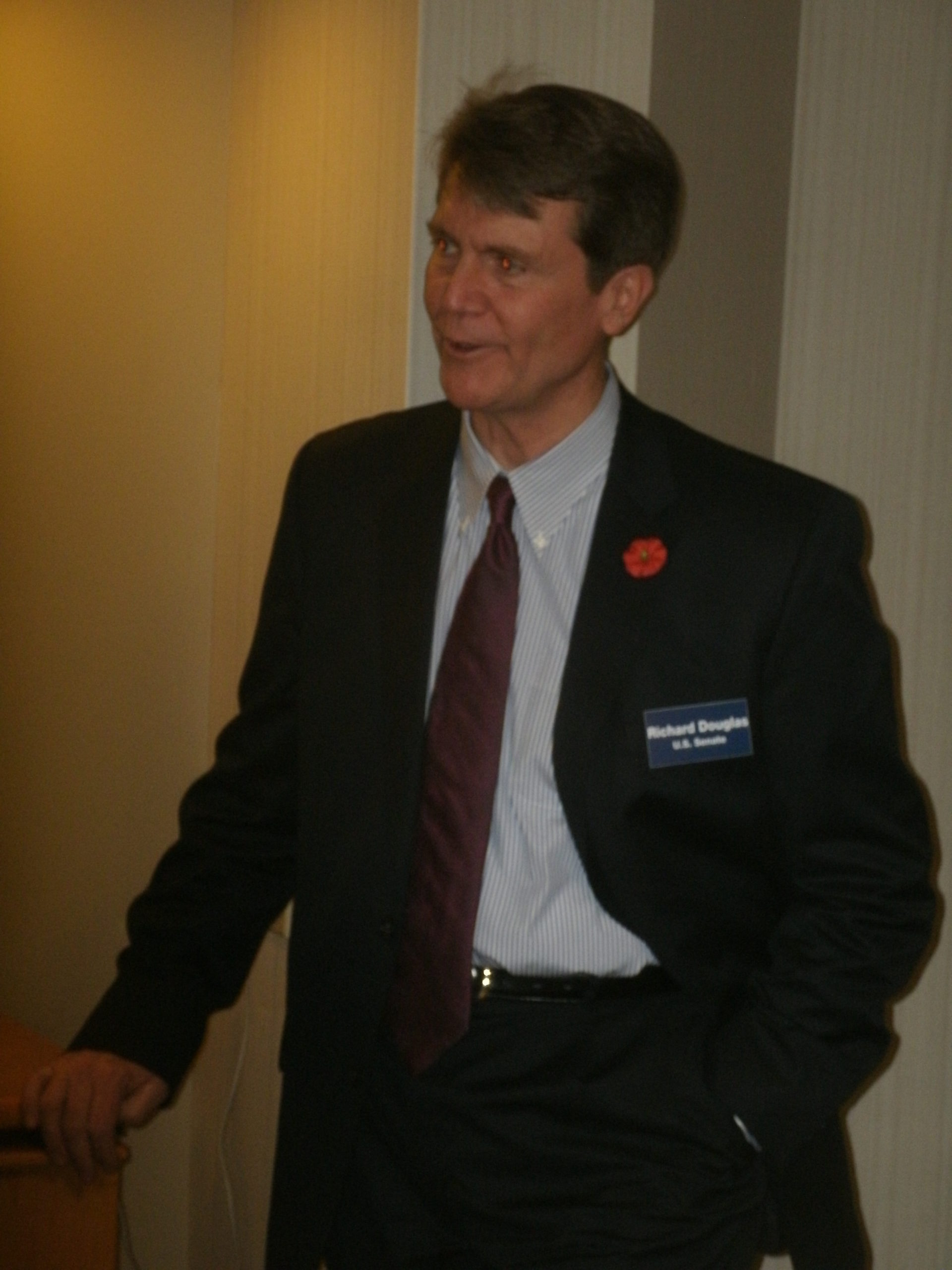
Notice the lapel poppy for Veteran’s Day; a nice touch.
Not to be outdone in the sweets department, fellow Senate candidate Dan Bongino had plenty of Smith Island cake, thanks to a friend. He also had the biggest space.

And, at the risk of making this look like a Weekend of local rock post, he’s the first candidate I’ve seen at these affairs with a band. These guys were pretty good classic rockers – I’m told the singer bassist is one of Dan’s county coordinators.

The signage was a little wordy but touted his endorsements. Dan revealed he has a few more before he’s done.
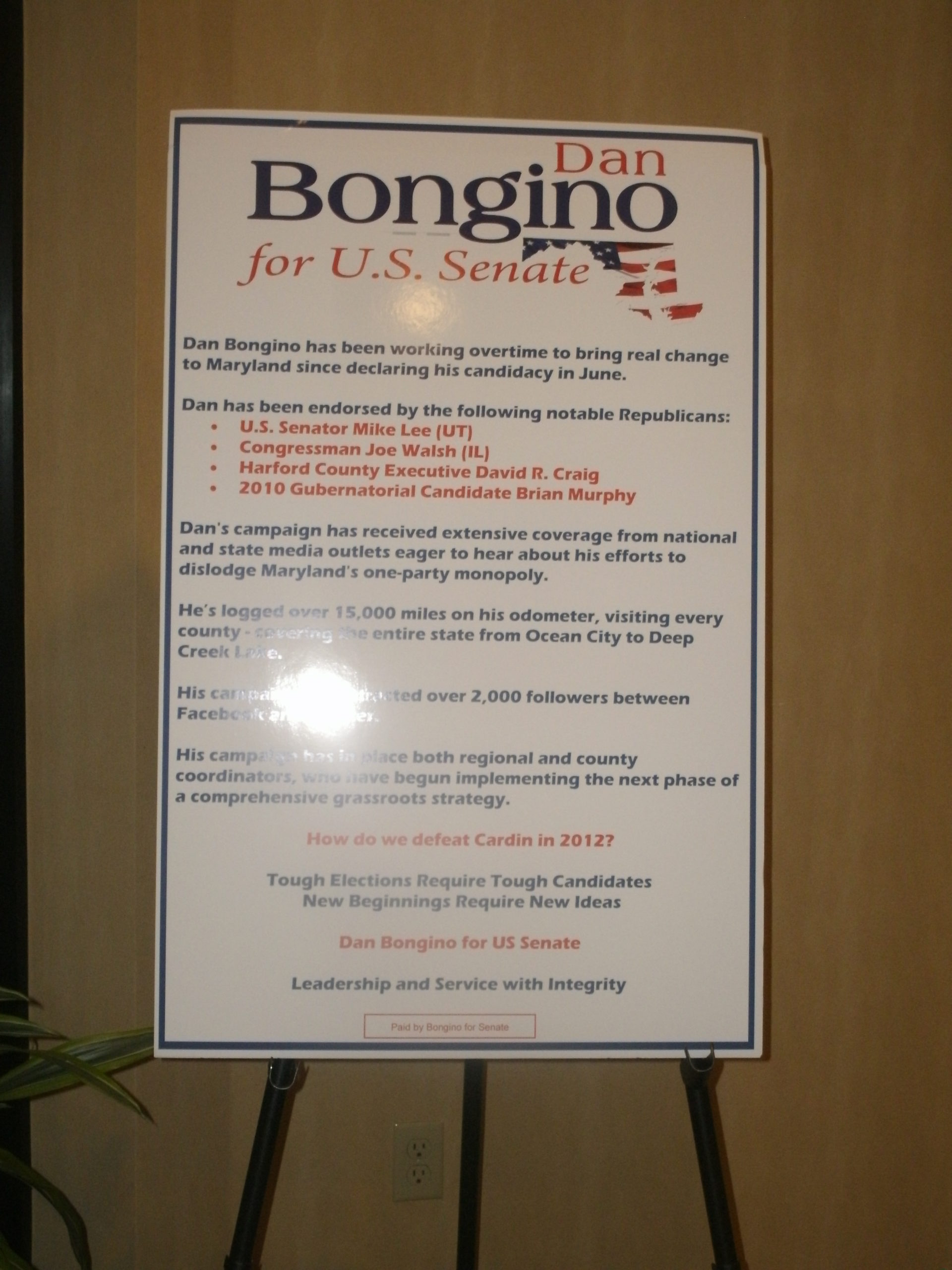
Besides the Bongino suite, which had decent traffic, I found the host county’s suite the most popular.

Maybe it’s all the elected official sponsors.
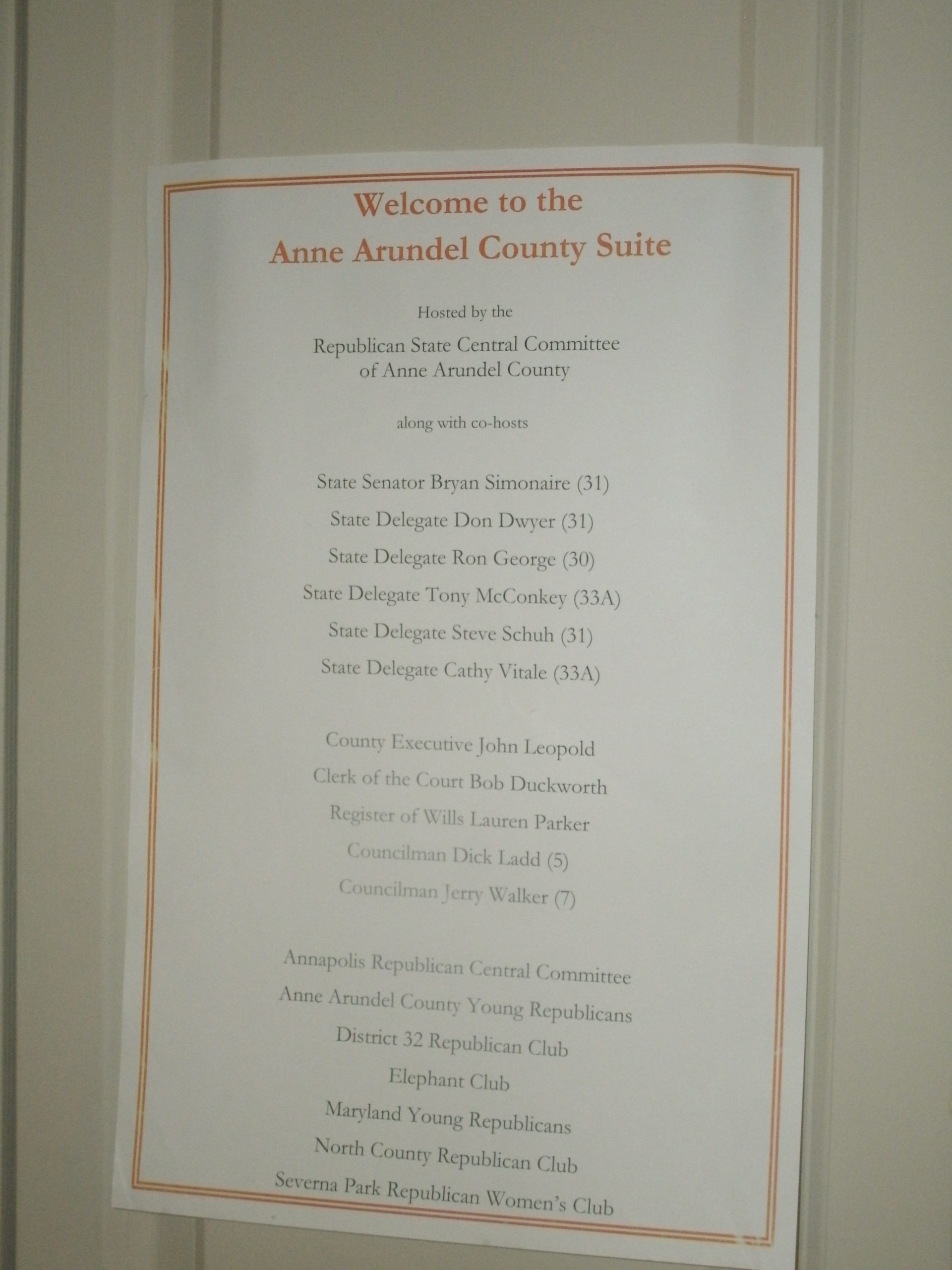
Speaking of supporters, it’s also worth further exploring something I touched upon with the Ron Paul table. A number of political organizations and businesses catering to that field had secured spaces. Here’s some of the examples.

The fairly new Maryland GOP Hispanic Coalition promoted an upcoming event – a forum on illegal immigration next week in Ellicott City.
As we were informed during the convention, the fight over Congressional redistricting is not over yet. This group is looking to install a much cleaner and fairer apportionment.
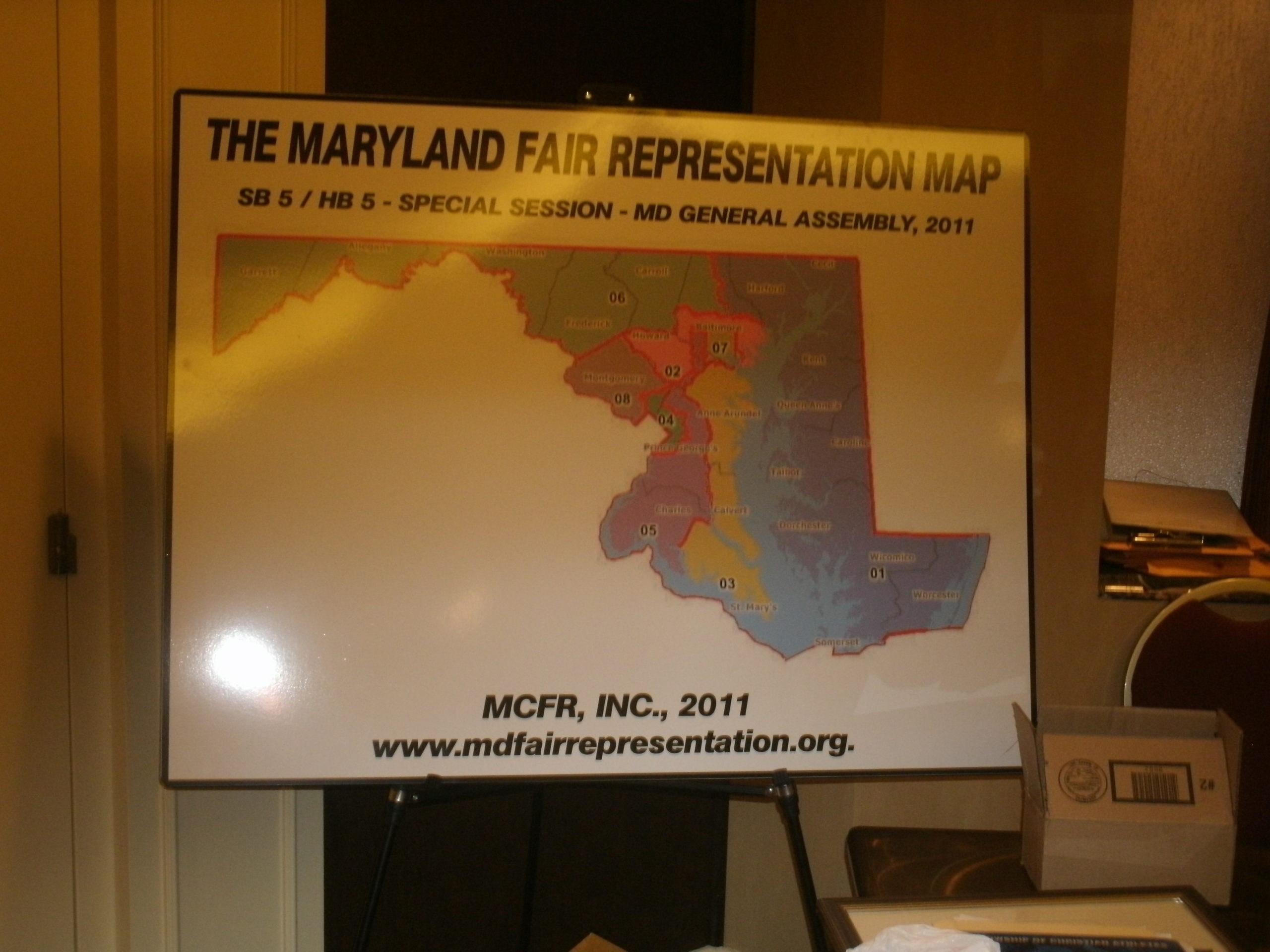
We had no shortage of social issue discussion there either.
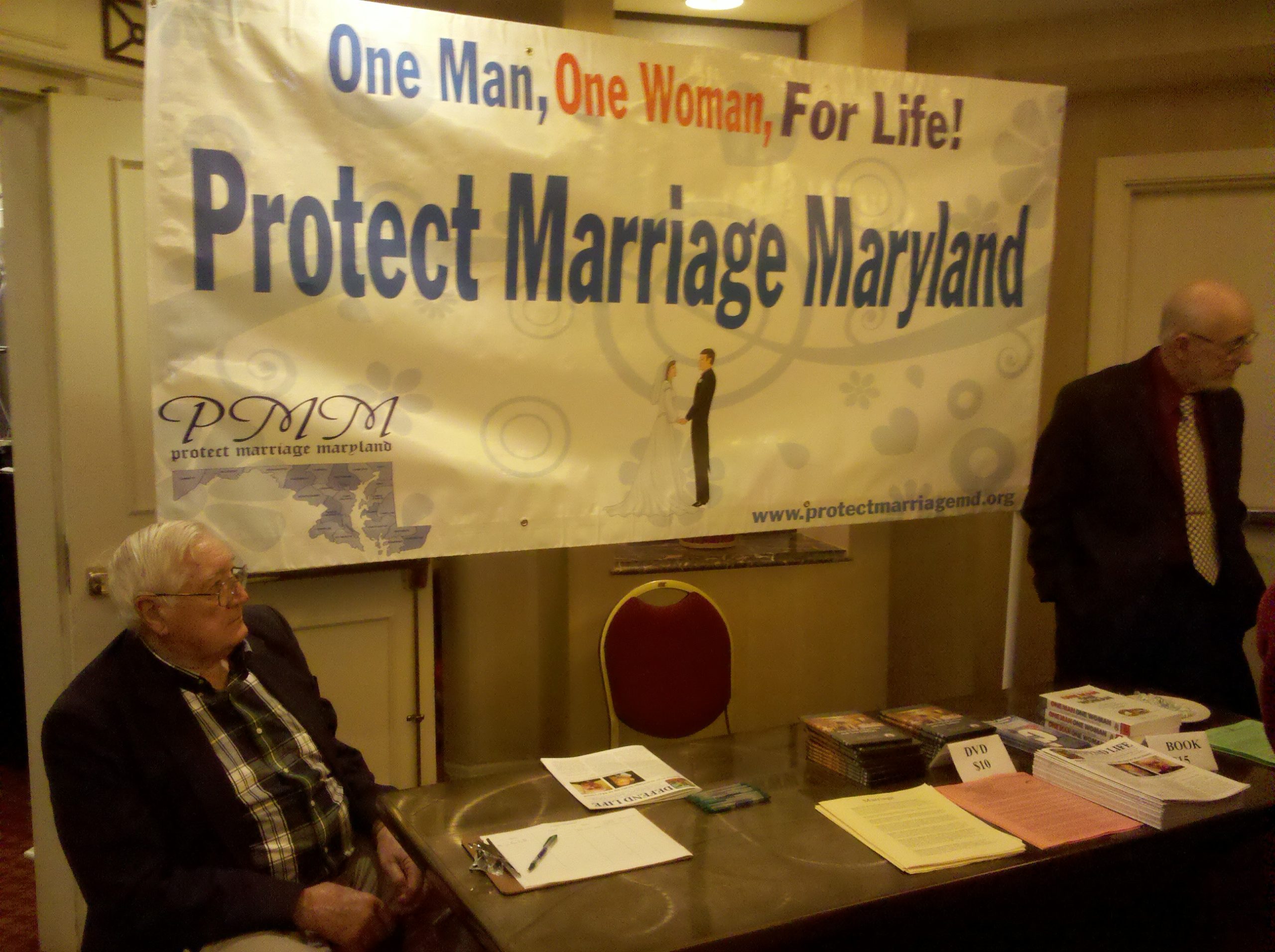
Perhaps this group knew PMM was coming, and attempted a little bit of point/counterpoint.
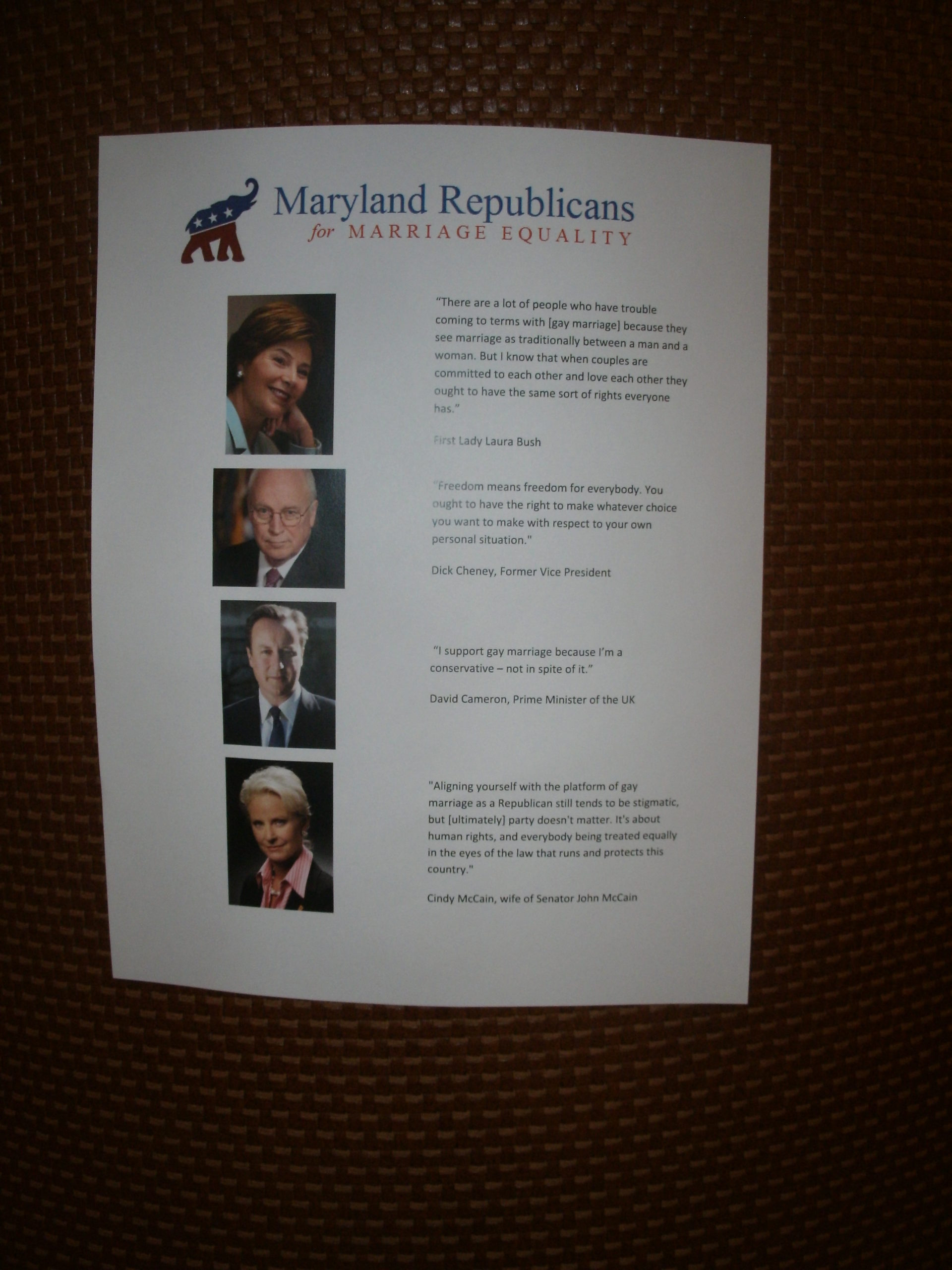
Senator Nancy Jacobs, the former Minority Leader in the Senate, had her own backdrop. But it doesn’t reflect yet her probable run for the Second Congressional District seat held by Dutch Ruppersberger.
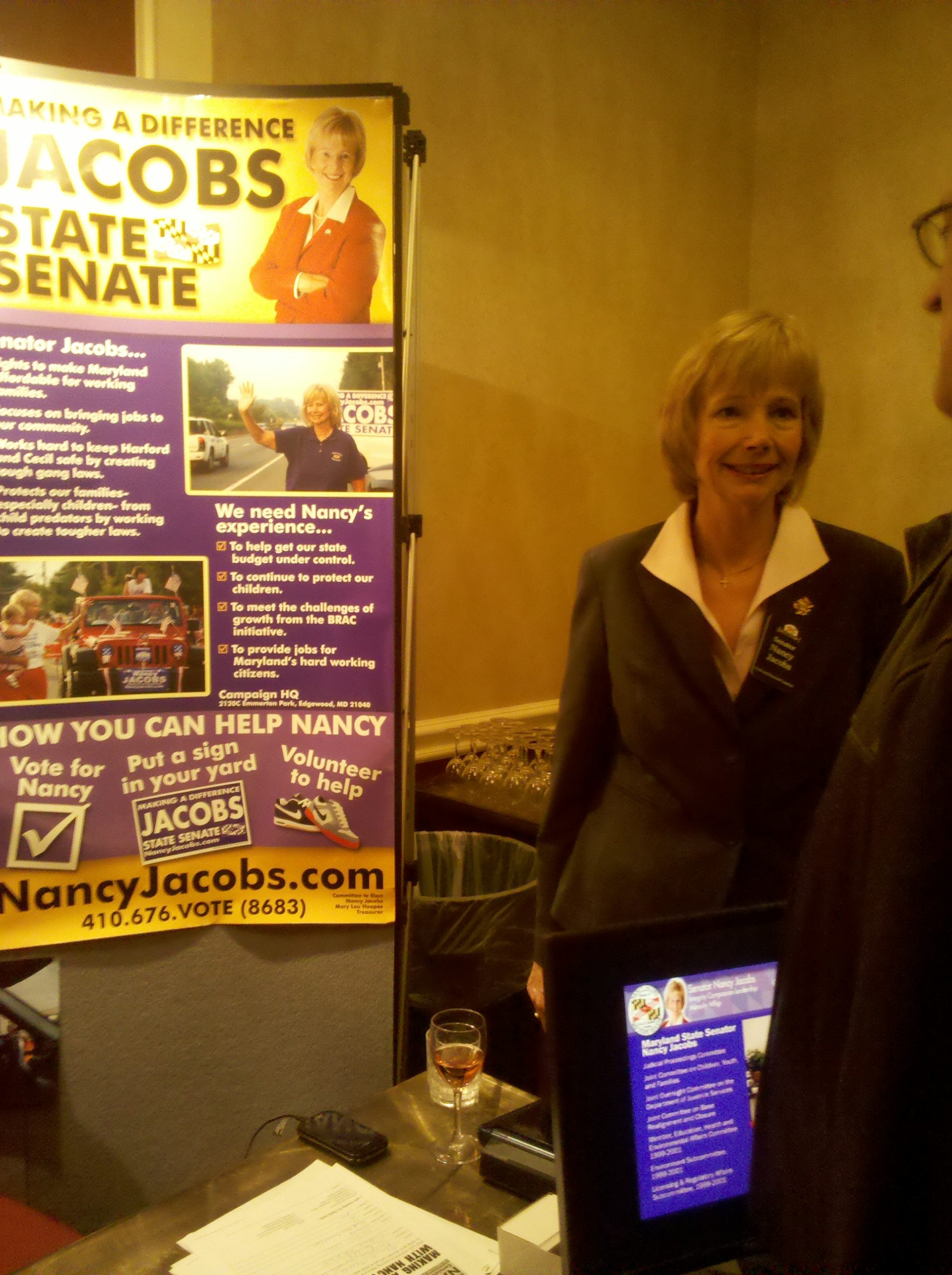
She also took a few minutes to appear on Red Maryland Radio, which was on location with co-hosts Greg Kline and Jimmy Braswell.
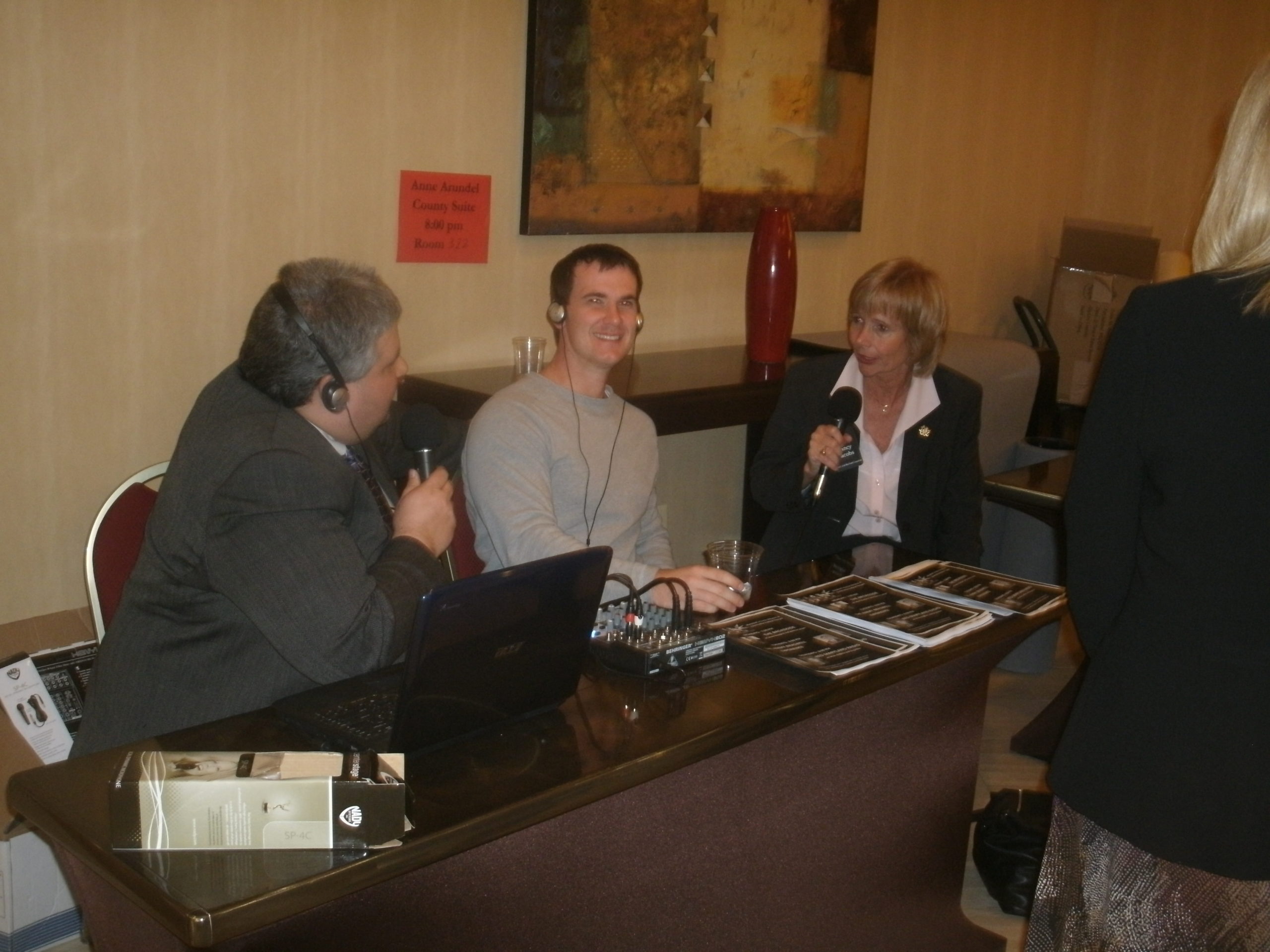
This looks pretty simple, doesn’t it? Here’s Kline getting set up earlier on.
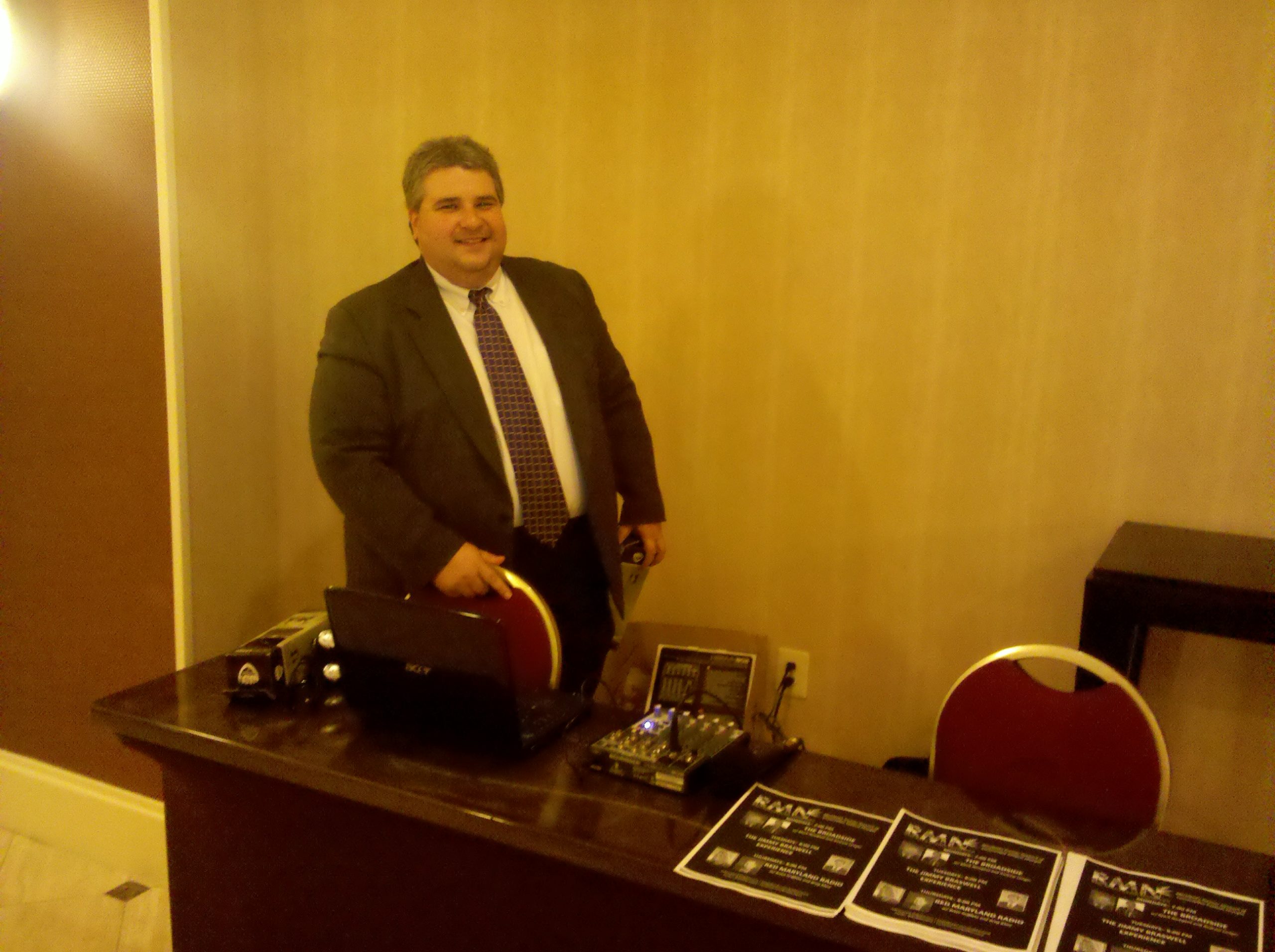
And if you want true radio gold, give this a listen just after the 60 minute mark. Yes, it’s my RMR debut – long overdue, I must say.
But in all candor it was enjoyable to be part of that remote. Yet the show which was even more interesting came once the sun rose over Annapolis again.

Our breakfast speaker was Frank Kelly III. Now Frank isn’t an elected official, just an interested citizen and business owner who was tapped to speak to us about the marriage issue – something the GOP was “a little bit involved” in.
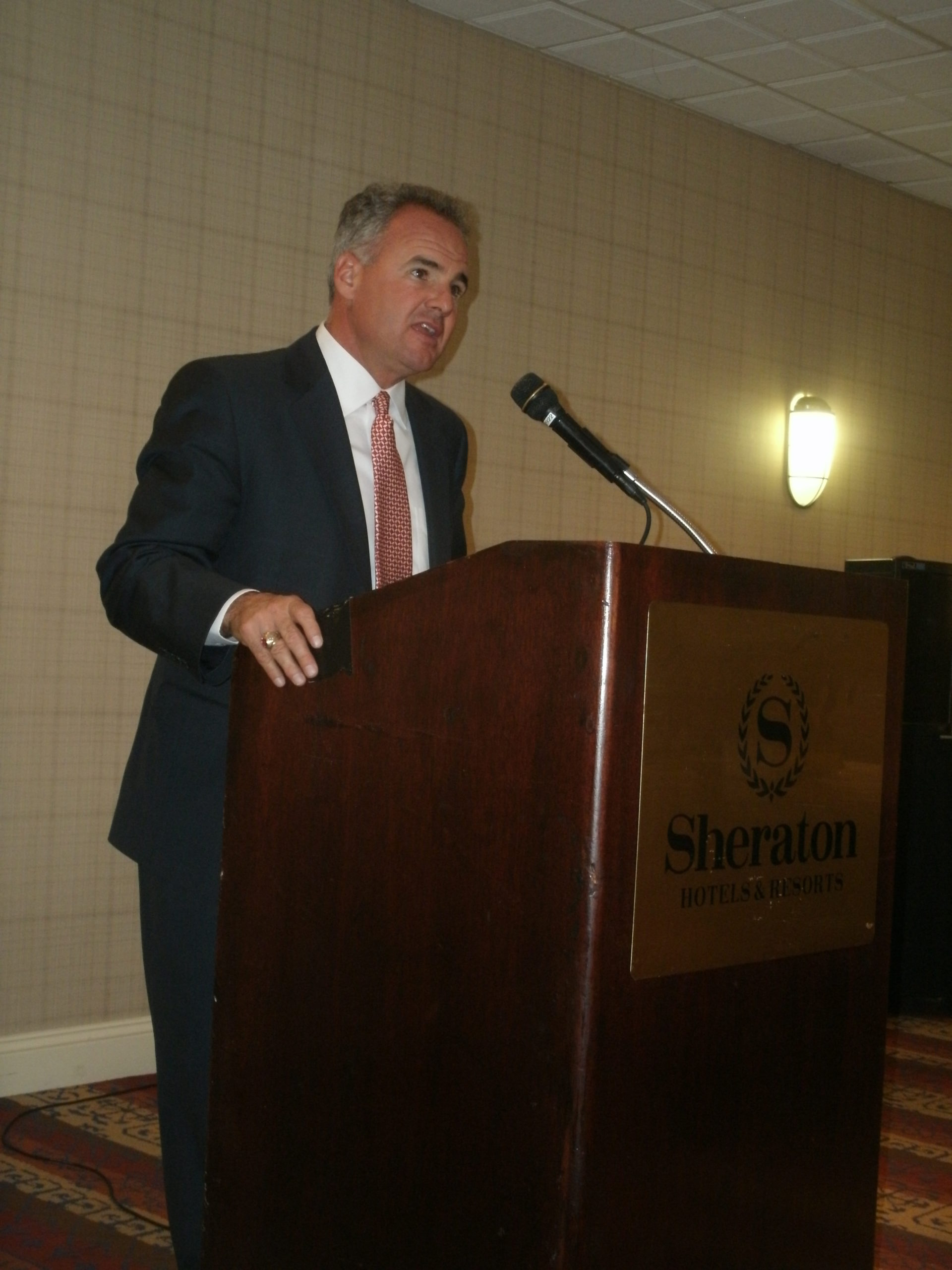
But I learned a couple things from Frank on the pro-life front. At the time of the adoption of Roe v. Wade in 1973, Maryland only permitted abortion in cases of rape, incest, or threat to mother’s life. That changed in 1990 when abortion on demand was passed through the Maryland legislature. And the chief Democratic opponent? A Senator named Frank Kelly.
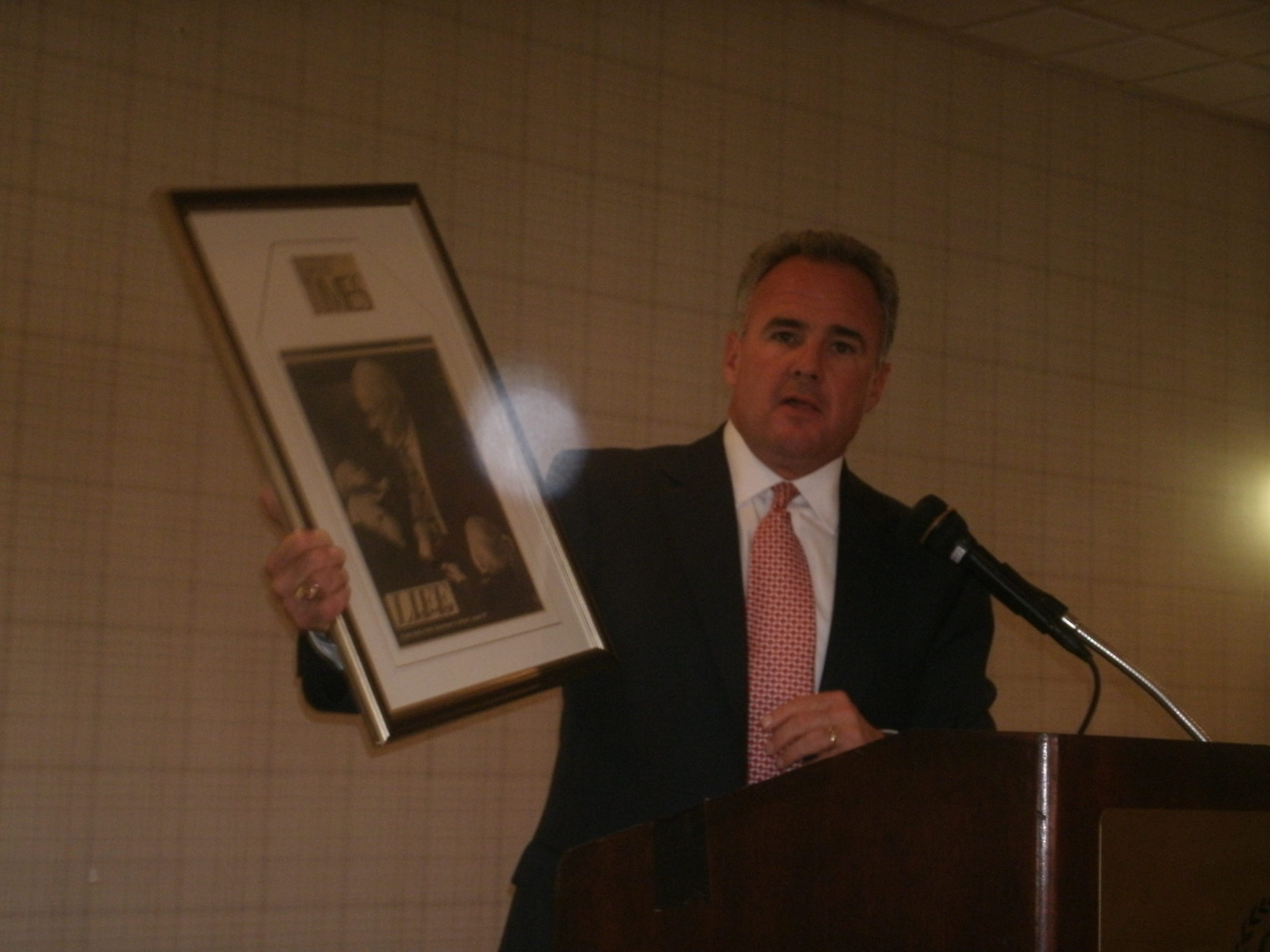
The younger Kelly got emotional as he recounted how his dad’s eight day filibuster against the bill ended up costing him a pretty safe seat in the Maryland Senate, where he served three terms from 1978-90. “People were spitting on us” at the polls that year, but “my dad stood for life.”
Returning to the marriage front, Kelly also mentioned how the “language of discrimination has been artificially inserted” into the same-sex marriage issue. Gays want approval for their lifestyle, and thus anything said in disapproval is automatically labeled “hate speech.”
Frank yielded a portion of his time to Maryland Family Alliance president Derek McCoy.
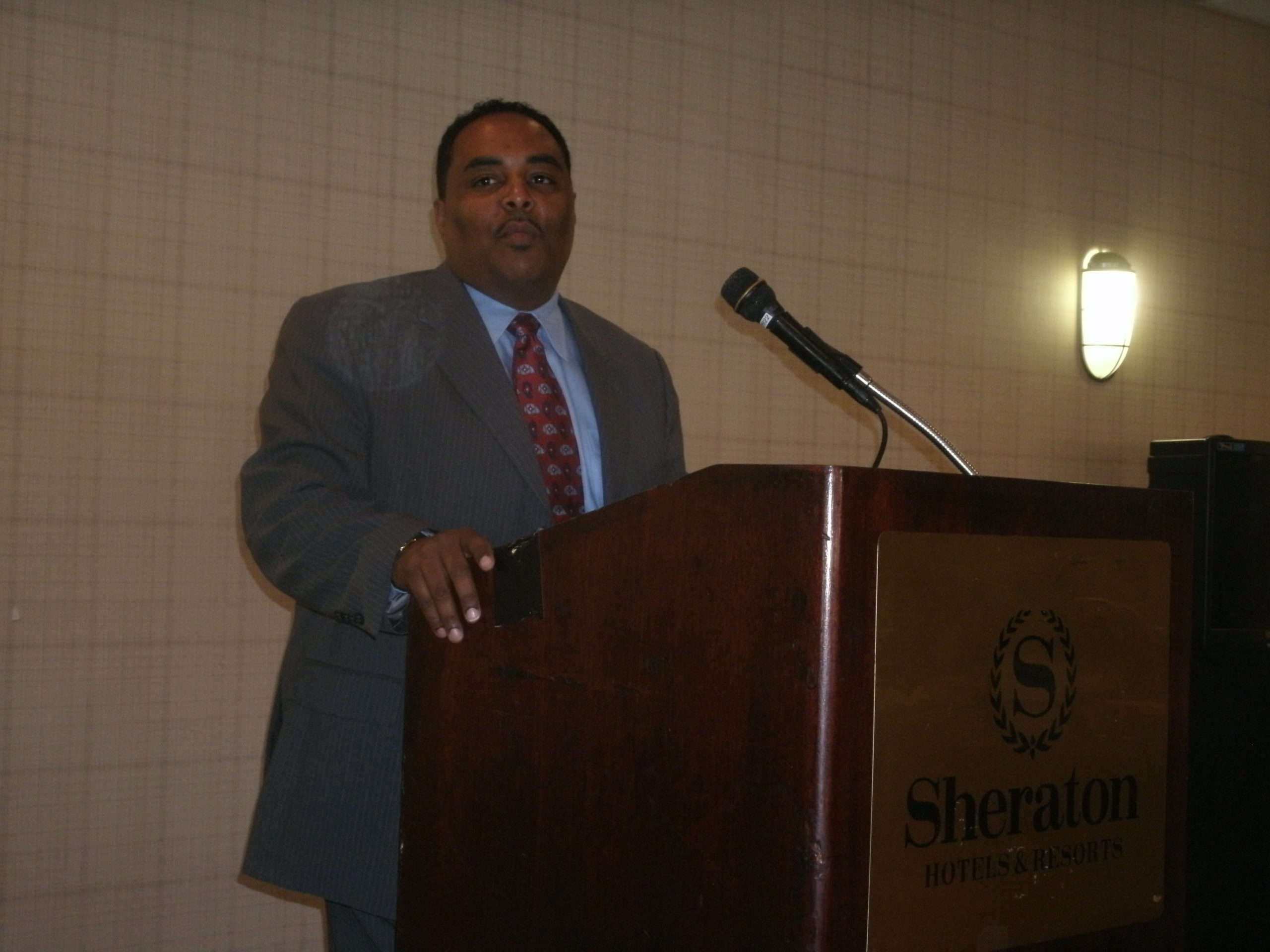
McCoy echoed Kelly’s remarks, but also warned “there’s a culture war being waged” in Maryland and nationally. “We’re fighting for a signpost of morality” for future generations on the marriage issue, noting that North Carolina and Minnesota will have that issue on the ballot in 2012, and Maryland might, too, if a same-sex marriage bill succeeds this time in the General Assembly. Last time pro-homosexual advocacy group Equality Maryland “rigged the system” and threatened business which didn’t support their bill, McCoy claimed, but “we kept coming from so many sides” that a bill guaranteed to pass didn’t.
After breakfast, I sat in on an interesting training session on the media while others talked about candidate recruitment, fundraising, and other intriguing topics.
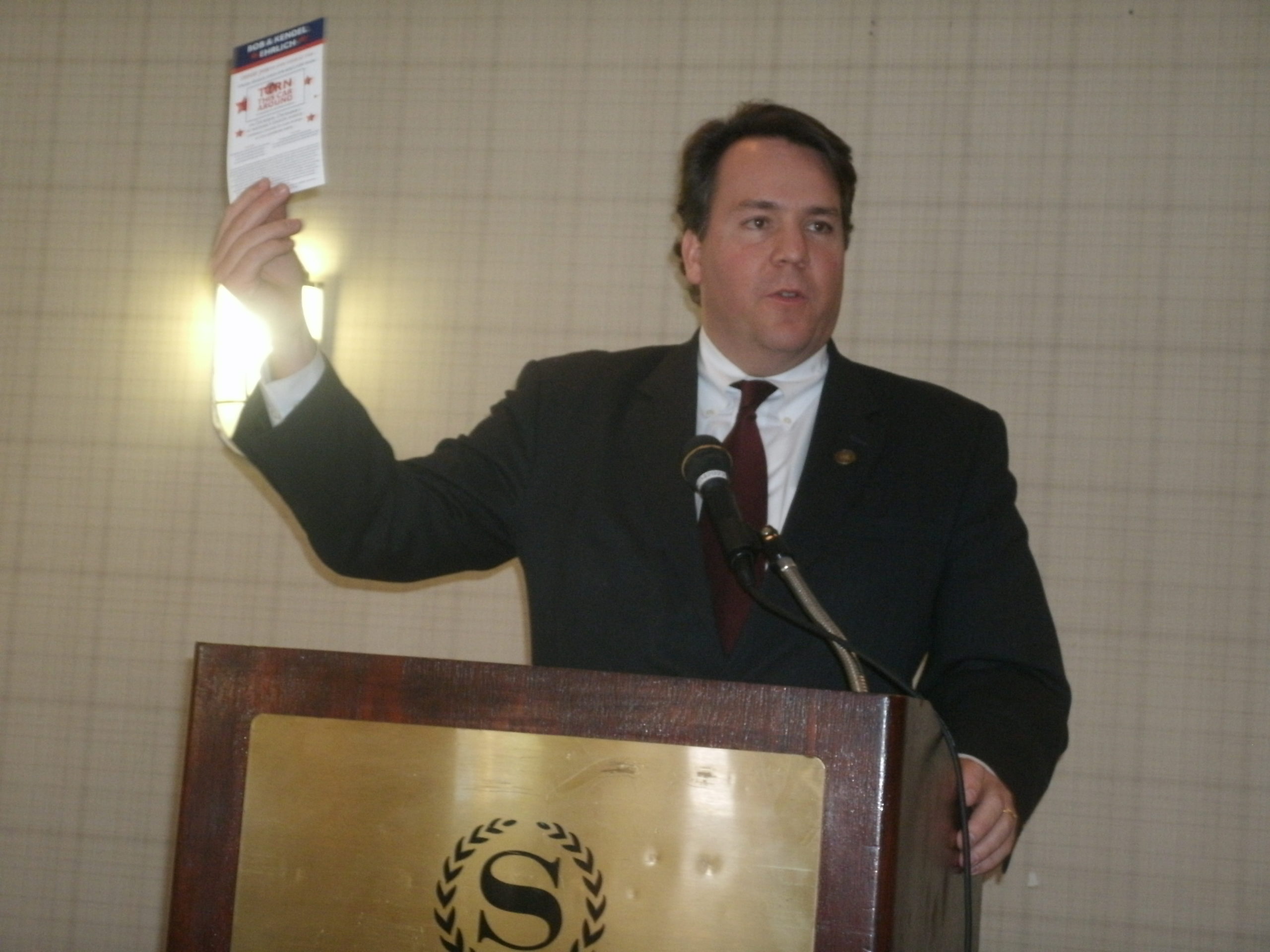
At lunch, Chair Alex Mooney went over some upcoming events before introducing our speaker, Delegate Neil Parrott.
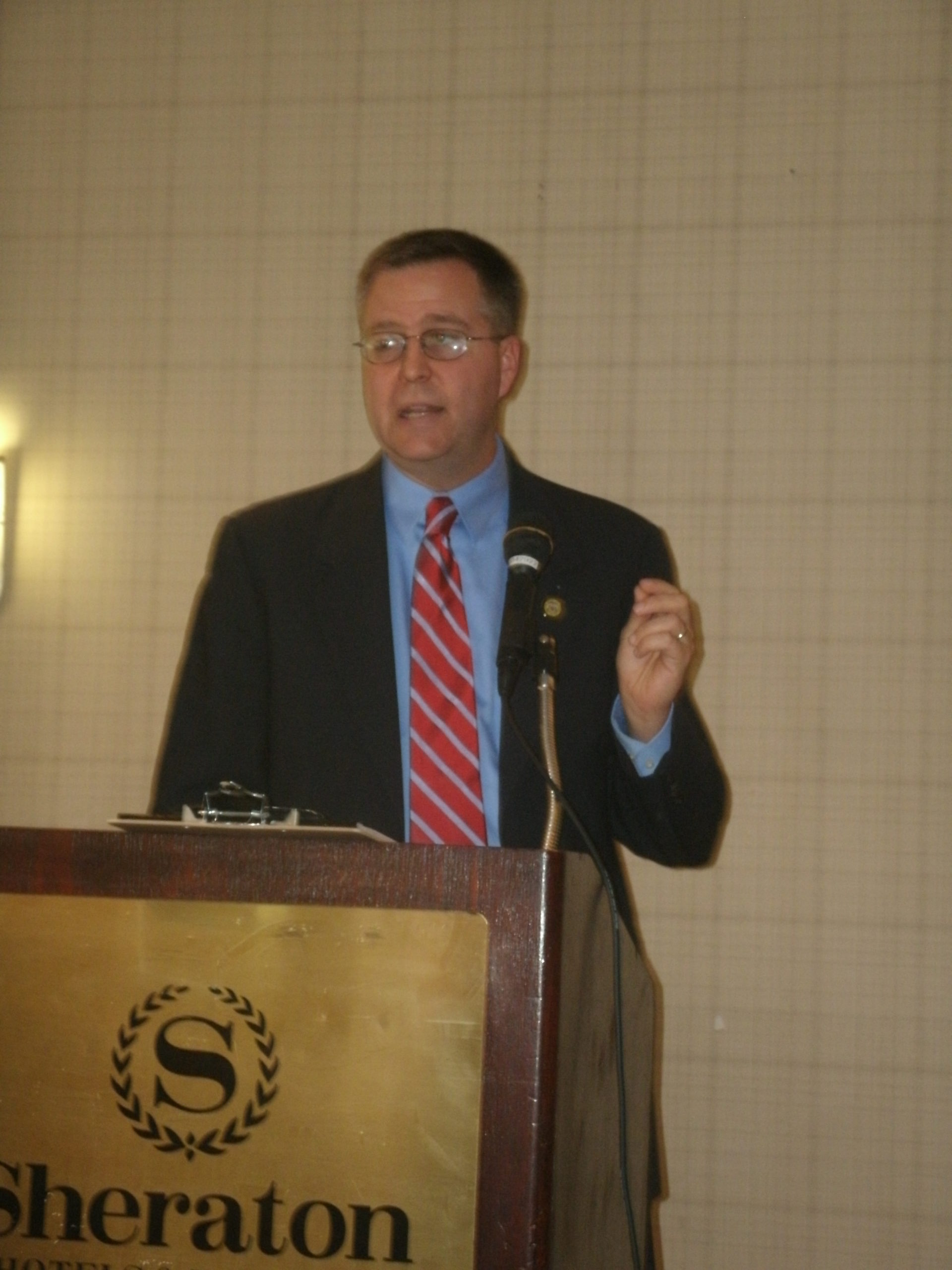
Parrott was blunt in his assessment: “We see this great country under attack today.” He pointed out that the TEA Party delayed Obamacare by a year, which pushed back other noxious legislation like cap-and-trade. We had won victories on national issues thanks to the influence of the TEA Party.
In Maryland, though, Neil still believed “the arrogance of the liberal leadership is appalling.” Still, the petition drive he spearheaded against in-state tuition for illegal aliens was a model which could be used elsewhere. And since only 1/3 of the signatures gathered for the drive were under contention due to the collection system, there should be more than enough to place the bill on the ballot despite a pending lawsuit. The internet-based system “worked like a charm” in driving down the error rate, and was “a new tool” we could use – provided there’s follow-through and the issue wins at the ballot box, too.
Parrott also brought up redistricting, saying the Congressional map was “ridiculous” and that “we can’t allow O’Malley to get away with this” on either the Congressional or state redistricting.
In closing, Parrott brought up the real-life examples of Wisconsin, Maine, and New Jersey to conclude change is possible if we work hard enough to make it happen.
Finally, it was time for the main event.
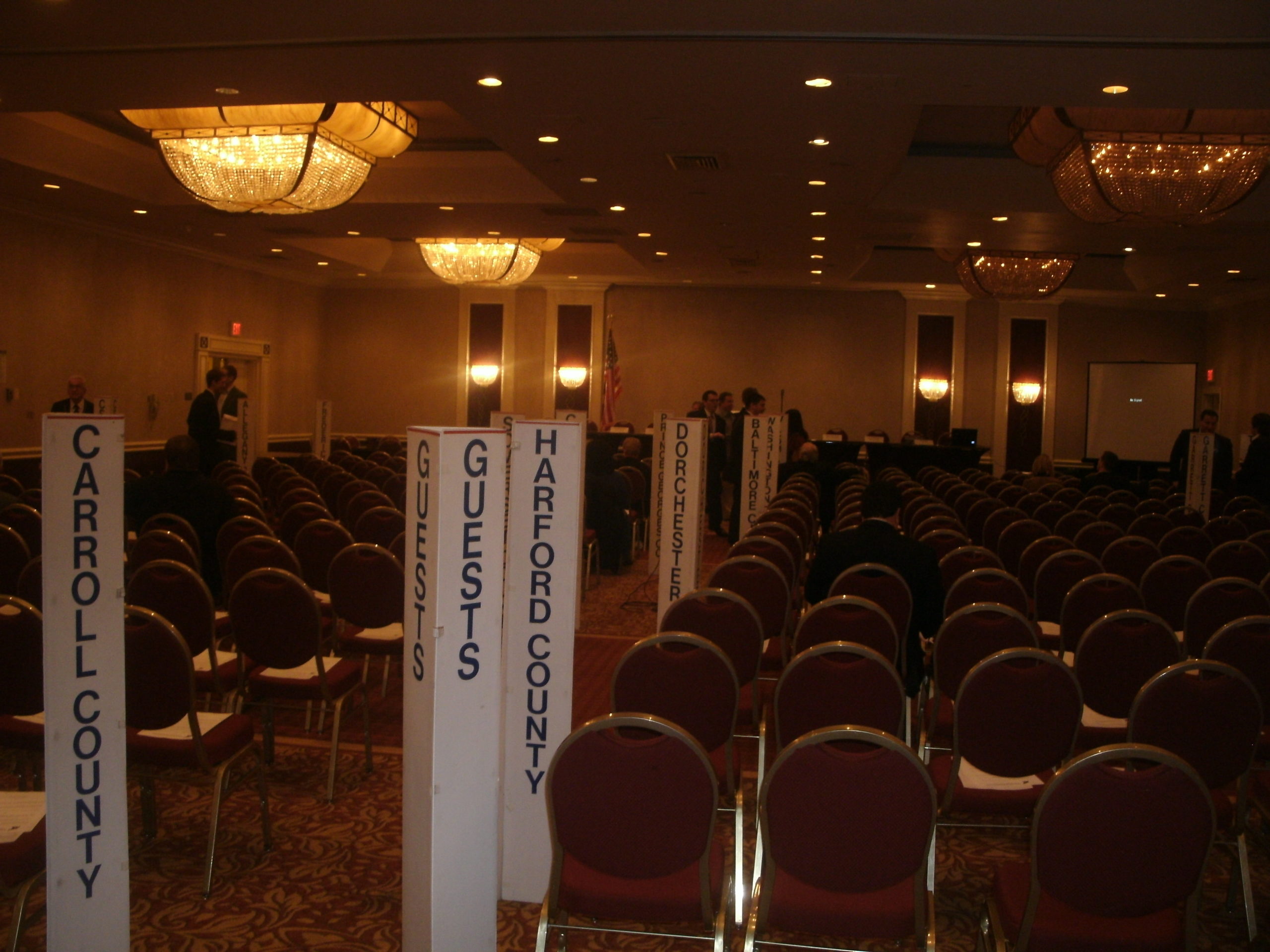
I already detailed the fate of our bylaws amendment, but there was a lot more said in the session. I’m going to focus on the reports of the Senate Minority Leader E.J. Pipkin and House Minority Leader Tony O’Donnell.
The newly elected Pipkin called it “humbling” to be selected as Minority Leader, but spent much of his time contending that Martin O’Malley wants to drive people back to Baltimore City through the War on Rural Maryland and its 1.6 million residents. Included in that assessment were the proposed septic ban, the “dangerous” PlanMaryland, Watershed Improvement Plans” which would cost 65,000 Maryland jobs, and the refusal to progress on extracting energy from the Marcellus Shale formation under Maryland’s panhandle. “O’Malley’s policies will kill jobs in rural areas,” Pipkin countered.
O’Donnell began his remarks by pointing out the GOP success in Virginia. “I sense it’s coming” to Maryland, he said, as Free State residents react to the prospects of higher gas taxes, Congressional redistricting which “insults the people of Maryland,” and a $28 billion time bomb of unfunded pensions and retiree benefits. He also had a message for the Fifth Congressional District: we “must hold Steny Hoyer accountable.”
We also heard briefly from Prince George’s County Chair Mykel Harris about the redistricting lawsuit he’s a plaintiff to. The Maryland GOP isn’t on defense anymore, he said, but instead “went on offense.” It’s fitting from a party that “passed civil rights and…will enforce it.”
Before we got to the bylaws amendment, we also received quick reports from our National Committeewoman Joyce Terhes, National Committeeman Louis Pope, Chair Alex Mooney, and Linda Hernandez of the aforementioned Hispanic Coalition. One item I gleaned from Mooney’s remarks was his claim that PlanMaryland is indeed subject to referendum. Very interesting.
So there you have it, the sights and words from our biannual get-together. Our Spring Convention should present a united front as the Presidential race will be pretty much decided, but we will have additional national convention delegates and alternates to select. In the meantime, Heather and I will likely redraft the Rule 11 amendment to reflect feedback we received, so look for that as well.































